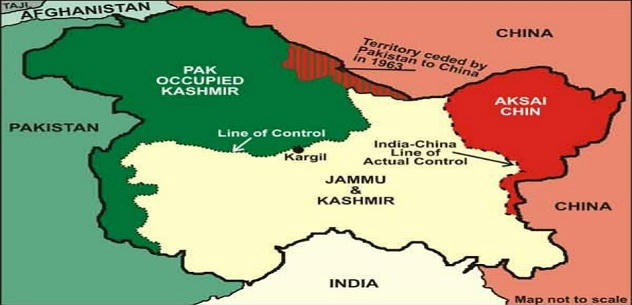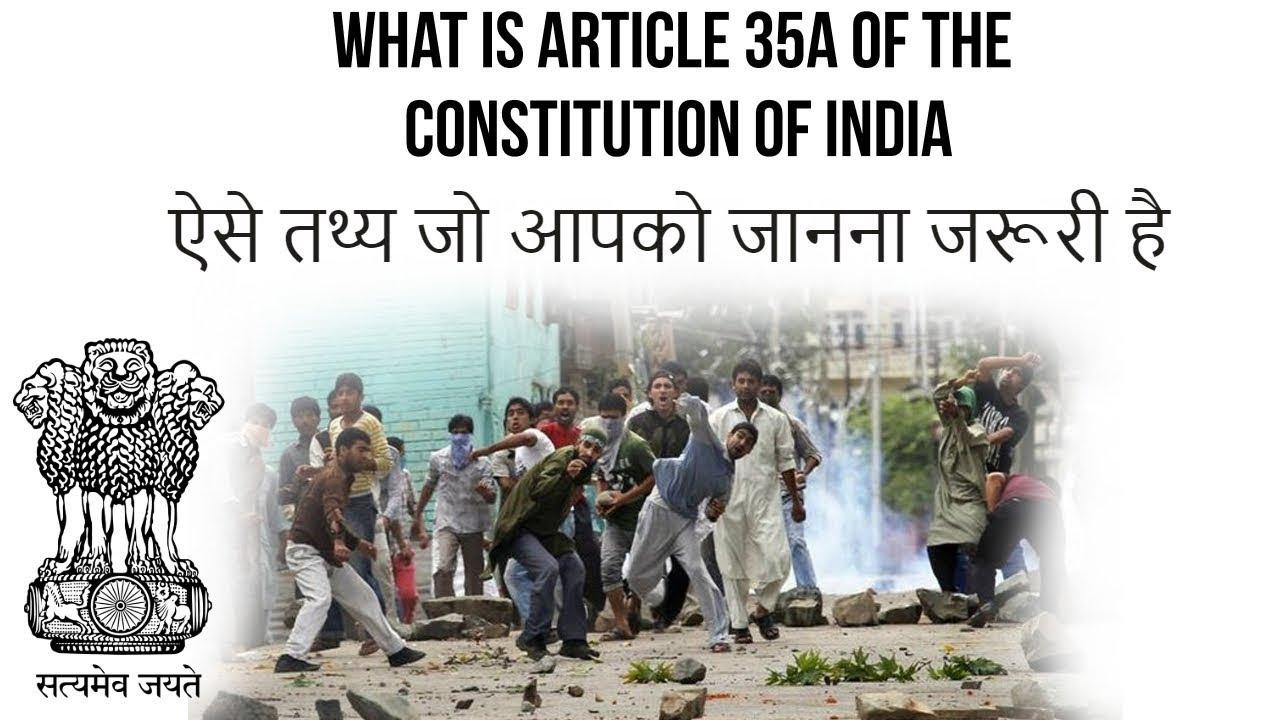Table of Contents
KASHMIR
KASHMIR ARTICLE 370
- Article 370 of the Indian constitution is an article that gives autonomous status to the state of Jammu and Kashmir.
- The article is drafted in Part XXI of the Constitution: Temporary, Transitional and Special Provisions.
- The Constituent Assembly of Jammu and Kashmir, after its establishment, was empowered to recommend the articles of the Indian constitution that should be applied to the state or to abrogate the Article 370 altogether.
ARTICLE 35-A
- Article 35A of the Indian Constitution is an article that empowers the Jammu and Kashmir state’s legislature to define “permanent resident” of the state and provide special rights and privileges to those permanent residents.
- It was added to the Constitution through a Presidential Order, i.e., The Constitution (Application to Jammu and Kashmir) Order, 1954 – issued by the President of India on 14 May 1954, exercising the powers conferred by the clause (1) of the Article 370 of the Indian Constitution, and with the concurrence of the Government of the State of Jammu and Kashmir.
ARTICLE 35-A
- Prior to 1947, Jammu and Kashmir was a princely state under the British Paramountcy. The people of the princely states were “state subjects”, not British colonial subjects.
- Legal provisions for the recognition of the status were enacted by the Maharaja of Jammu and Kashmir between 1912 and 1932.
- The 1927 Hereditary State Subject Order granted to the state subjects the right to government office and the right to land use and ownership, which were not available to non-state subjects.
ARTICLE 35-
- A Following the adoption of the provisions of the Delhi Agreement by the Constituent Assembly of Jammu and Kashmir, the President of India issued The Constitution (Application to Jammu and Kashmir) Order, 1954, through which Indian citizenship was extended to the residents of the state, and simultaneously the Article 35A was inserted into the Indian constitution enabling the State legislature to define the privileges of the permanent residents
ARTICLE 35-A
- Notwithstanding anything contained in this Constitution, no existing law in force in the State of Jammu and Kashmir, and no law hereafter enacted by the Legislature of the State: (a) defining the classes of persons who are, or shall be, permanent residents of the State of Jammu and Kashmir; or (b) conferring on such permanent residents any special rights and privileges or imposing upon other persons any restrictions as respects— (i) employment under the State Government; (ii) acquisition of immovable property in the State; (iii) settlement in the State; or (iv) right to scholarships and such other forms of aid as the State Government may provide, shall be void on the ground that it is inconsistent with or takes away or abridges any rights conferred on the other citizens of India by any provision of this part.”
CRITICISM
- Article 35A was not added to the Constitution by following the procedure prescribed for amendment of the Constitution of India under
Article 368.
- Article 35A was never presented before Parliament. This meant the President had bypassed Parliament in this order to add
Article 35A
- The PRC classification created by Article 35A suffers from the violation of Article 14, Equality before the Law. The non-resident Indian citizens cannot have the rights and privileges, same as permanent residents of Jammu and Kashmir.
CRITICISM
- It facilitates the violation of the right of women to ‘marry a man of their choice’ by not giving the heirs any right to property, if the woman marries a man that is not a permanent resident.
- It facilitates the free and unrestrained violation of fundamental rights of those workers and settlers like Scheduled Caste and Scheduled Tribe people who have lived there for generations.
- The industrial sector & whole private sector suffers due to the property ownership restrictions.
CRITICISM
- Good doctors don’t come to the state for the same reason and Children of non-state subjects do not get admission to state colleges.
- It ruins the status of West Pakistani refugees. Being citizens of India they are not stateless persons, but being non-permanent residents of Jammu and Kashmir, they cannot enjoy the basic rights and privileges as being enjoyed by permanent residents of Jammu and Kashmir.
























 WhatsApp
WhatsApp